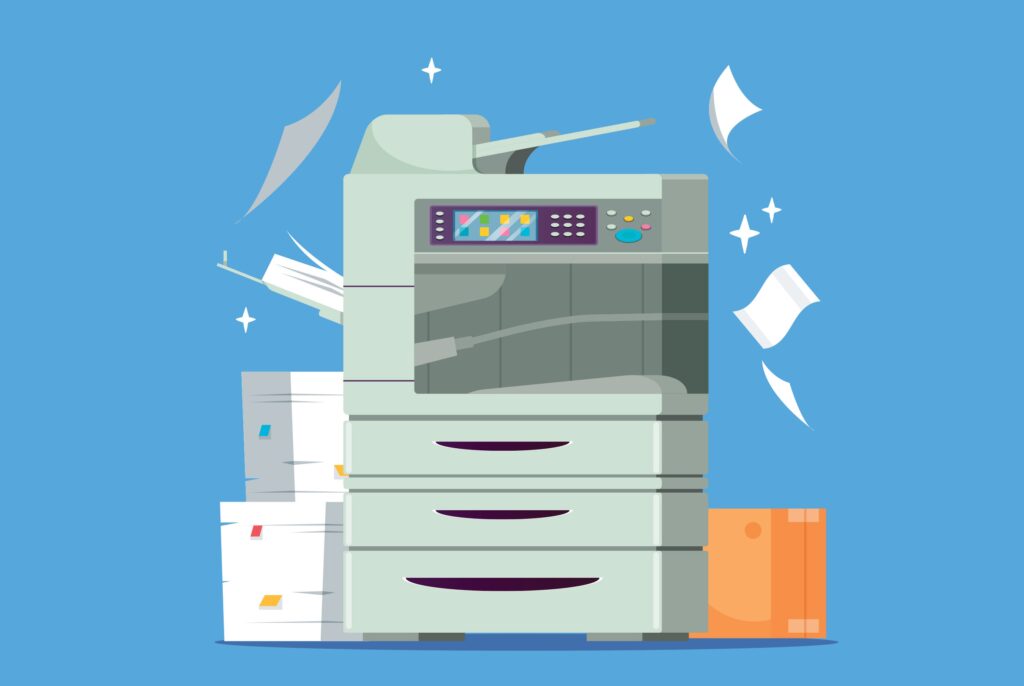
Choosing a document management system varies by industry, with different compliance, workflow, and security requirements. This guide outlines the key factors organizations should consider when evaluating options.
Not all Document Management Systems (DMS) are created equal, especially when it comes to the specific needs of different industries. A law firm and a healthcare provider may both need secure document storage, but the way they manage records, comply with regulations, and collaborate internally are worlds apart.
Choosing the right DMS for your industry is about more than checking boxes, it’s about finding a platform that can adapt to your workflows, meet compliance standards, and help your team work smarter.
In this guide, we’ll cover:
- The key factors to consider when choosing a DMS
- Common industry-specific requirements (with examples from healthcare, legal, and finance)
- Must-have features to prioritize
- How to evaluate vendors effectively
- Next steps once you’ve chosen a system
Not exactly sure what a document management system is? Here’s a quick guide →
Why Industry Matters When Choosing a DMS
Most DMS platforms offer a core set of features—file storage, access controls, search, and sharing. But different industries have different:
- Regulatory compliance requirements (HIPAA, FINRA, SOC 2)
- Document lifecycles and retention schedules
- Security and audit needs
- Collaboration styles
- Volume and format of records (paper-heavy vs. digital)
Choosing a generic DMS might work in the short term, but for long-term success, it’s essential to pick a system that aligns with your industry workflows and risk profile.
Questions to Ask Before Choosing a DMS
Before looking at platforms, clarify these internal questions:
- What types of documents do we manage most often?
- Who needs access to what—and from where?
- What regulations govern how we store and protect data?
- Do we need to integrate with other tools (EMR, CRM, accounting systems)?
- Are our documents currently digital, or will we be scanning paper files?
- How often do we need to search, retrieve, or share records?
Document Management Needs by Industry
Healthcare
Healthcare organizations must manage vast amounts of Protected Health Information (PHI) and stay compliant with HIPAA regulations.
Must-Have DMS Features:
- End-to-end encryption (at rest and in transit)
- HIPAA-compliant access controls
- Role-based permissions (e.g., doctors, nurses, admin staff)
- Audit trails to track who accessed or changed each record
- Integration with EMR/EHR systems
- Document retention scheduling for compliance
Tip: Many healthcare providers also benefit from scanning and converting legacy charts into searchable digital files.
Learn more about our healthcare document management services →
Legal
Law firms handle sensitive case files, court documents, contracts, and confidential client data that must be organized and securely stored, often for long periods.
Must-Have DMS Features:
- Full-text OCR search across scanned documents
- Secure sharing with external parties (clients, courts, opposing counsel)
- Version control and check-in/check-out functionality
- Timestamped audit logs
- Document retention and legal hold capabilities
- Bates numbering and legal file metadata tagging
Tip: Look for a DMS that supports both physical file tracking and digital document access.
Learn more about our legal document management services →
Financial & Insurance
Organizations in finance and insurance deal with client data, regulatory paperwork, and compliance audits. They often require quick retrieval, strict privacy, and detailed audit histories.
Must-Have DMS Features:
- Compliance support for FINRA, SEC, GLBA, or Sarbanes-Oxley
- Automated document retention and purge scheduling
- Advanced permissions and two-factor authentication
- Built-in workflow automation (e.g., claims processing, approvals)
- Integration with policy and account management tools
- Instant search for account records and transaction history
Tip: Cloud-based DMS platforms often offer the flexibility and access financial teams need—without compromising on security.
Learn more about our financial document management services →
General DMS Features to Prioritize (Regardless of Industry)
- User-Friendly Interface: High adoption means better data consistency
- Scalability: Can it grow with your business or support multiple locations?
- Mobile Access: Especially important for remote or hybrid teams
- Disaster Recovery & Backups: Protect your documents from ransomware or outages
- Search and Indexing: Keyword, metadata, and full-text search capabilities
- Integration: Can it connect to your existing tech stack?
Evaluating DMS Vendors
When reviewing vendors, go beyond features. Look for:
- Experience in your industry
- Customer support and onboarding services
- Security certifications (SOC 2, HIPAA-compliant hosting)
- Customization and configuration flexibility
- Transparent pricing (especially for long-term storage or user growth)
Ask for references or case studies from similar clients in your industry.
Combine DMS with Scanning or Offsite Storage
If you’re starting with paper records, consider a hybrid strategy: scan high-use files, store long-term archives offsite, and manage them digitally through your DMS.
Explore document storage and digitization solutions →
Choosing the best Document Management System is about more than tech specs, it’s about supporting your people, protecting your data, and aligning with your industry’s requirements.
The right DMS reduces risk, increases efficiency, and frees your team to focus on what matters most. Whether you’re in healthcare, law, finance, or any other regulated industry, the time to modernize your records management is now.
We can help find the right Document Management System for your business →



